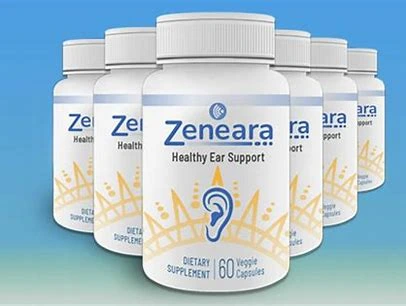Last updated on May 27th, 2025 at 12:26 pm
“Learn how to effectively care for your ears with our essential tips on ear hygiene and ear health. Discover best practices for preventing ear infections, managing earwax, and protecting your hearing. Prioritize your auditory wellness and maintain healthy ears for a better quality of life.”

Our ears are often overlooked when it comes to health care, but they play a vital role in how we experience the world. Whether it’s hearing the laughter of a loved one, enjoying your favorite music, or the simple sounds of nature, ear health is critical. Taking small steps to care for your ears can make a significant difference, ensuring you enjoy good hearing well into the future.
The Importance of Ear Hygiene
Keeping your ears clean is essential, but the way you clean them is even more important. Many people use cotton swabs, but did you know they can push earwax deeper into the ear canal? Instead, try to use ear drops that soften the wax or simply wipe the outer part of your ear with a damp cloth.
Maintaining ear hygiene doesn’t just prevent blockages; it also reduces the risk of infections. Always avoid inserting foreign objects into your ears, as this can cause injury or irritation.
Protecting Your Ears from Noise
We live in a noisy world. From traffic and construction sounds to loud music at concerts, our ears are constantly exposed to noise. Prolonged exposure to high noise levels can damage the sensitive cells in the inner ear, leading to hearing loss.
Whenever possible, take a break from noisy environments. If you work in a loud setting, wear protective earplugs or earmuffs to reduce noise exposure. When listening to music through headphones, try to follow the 60/60 rule—listen at no more than 60% volume for no longer than 60 minutes at a time.
Recognizing Early Signs of Ear Issues
Your ears can give you subtle signs when something is wrong. If you experience ringing (tinnitus), discomfort, or frequent ear infections, it’s time to consult a doctor. Sudden changes in hearing, dizziness, or fluid leakage from the ear can also indicate more serious problems.
Embrace Silence and Rest
Just as your body needs rest, so do your ears. Taking breaks from constant noise can be refreshing for your auditory system. Try sitting in a quiet room, meditating, or enjoying some moments of silence to give your ears a chance to rest. It’s a small but effective way to preserve your hearing.
Final Thoughts with Zeneara
At Zeneara, we believe ear health should be a priority, just like the rest of your well-being. Through natural and gentle solutions, we’re here to help you keep your ears in perfect harmony with your surroundings. With a little care and mindfulness, you can enjoy clearer hearing and a more vibrant connection to the world around you.
Take care of your ears today – they’ve been taking care of you for a lifetime!
Table of Contents
ToggleFAQ: Ear Health
1. Why is ear health important?
Healthy ears are essential for clear hearing, balance, and quality of life. Poor ear health can lead to hearing loss, infections, and balance issues, impacting daily activities and communication.
2. What are common signs of ear problems?
Common symptoms include pain, ringing (tinnitus), hearing loss, discharge, dizziness, and itching. If you experience any of these, consult a healthcare professional for diagnosis and treatment.
3. How often should I clean my ears?
Ears usually clean themselves naturally by pushing out wax. It’s best to avoid inserting objects like cotton swabs into the ear canal. If you have excess earwax, consult a healthcare professional for safe removal methods.
4. What causes earwax buildup?
Earwax buildup can result from natural ear anatomy, earbud usage, or overproduction of earwax. Some people may produce more earwax than others, leading to blockages and discomfort.
5. Is it safe to use cotton swabs to clean my ears?
No, using cotton swabs can push wax deeper into the ear canal, potentially causing blockages or damaging the eardrum. Instead, clean the outer ear with a cloth, and avoid inserting anything into the ear canal.
6. How can I prevent ear infections?
To prevent ear infections, keep your ears dry, avoid putting objects in the ears, and practice good hygiene. Swimmers should consider using earplugs to keep water out. Treating allergies and colds promptly can also reduce the risk of infections.
7. What is tinnitus, and can it be treated?
Tinnitus is the perception of ringing or buzzing in the ears. Causes range from exposure to loud noise to ear infections or aging. While there is no cure, management options such as sound therapy, hearing aids, and lifestyle changes can reduce symptoms.
8. How does loud noise affect ear health?
Exposure to loud noise, especially for prolonged periods, can damage the sensitive structures in the inner ear, leading to permanent hearing loss. Wearing ear protection in noisy environments is essential to preserving hearing.
9. What is ear candling, and is it safe?
Ear candling is an alternative practice claimed to remove earwax with a hollow candle. However, it’s not recommended as it can cause burns, blockages, and even ear injuries. Professional ear cleaning is a safer option.
10. How does diet impact ear health?
A balanced diet rich in vitamins and minerals, particularly vitamins A, C, E, and zinc, can support ear health by reducing inflammation and protecting against infections. Omega-3 fatty acids are also known to benefit hearing.
11. Are headphones or earbuds bad for my ears?
Using headphones or earbuds at high volumes can damage hearing over time. The “60/60 rule” (listening at 60% volume for no more than 60 minutes at a time) is a good guideline. Over-ear headphones are typically safer than earbuds.
12. How can I protect my ears when swimming?
Wearing swim earplugs can help keep water out and reduce the risk of infections. After swimming, tilt your head to drain any trapped water, and gently dry your outer ears with a towel.
13. Can stress impact ear health?
Yes, stress can worsen ear conditions like tinnitus. Managing stress through activities like exercise, meditation, or hobbies can have a positive effect on ear health and overall well-being.
14. Is hearing loss reversible?
Most types of hearing loss, particularly noise-induced and age-related hearing loss, are permanent. However, some cases, like hearing loss due to earwax buildup or infections, can be treated. Early diagnosis and treatment can help prevent further loss.
15. What are some tips for maintaining good ear health?
Avoid loud noises, clean ears carefully, limit earbud use, manage stress, and maintain a balanced diet. Regular check-ups with an audiologist are also beneficial, especially if you notice changes in your hearing.
16. How often should I have my hearing checked?
Adults should get their hearing checked every 3-5 years. If you’re frequently exposed to loud sounds, have a family history of hearing loss, or notice changes in your hearing, consider more frequent evaluations.
17. Can allergies affect ear health?
Yes, allergies can lead to congestion and fluid buildup in the middle ear, which can cause pain, pressure, and sometimes hearing loss. Treating allergies promptly can reduce ear-related symptoms.
18. Are there natural remedies for improving ear health?
Natural remedies like garlic oil drops, olive oil for earwax softening, and staying hydrated can support ear health, but it’s essential to consult a healthcare professional before using any home remedies to ensure safety.
19. What should I do if I have ear pain or discomfort?
If you experience ear pain or discomfort, avoid inserting objects into the ear, and apply a warm compress. If pain persists or is accompanied by other symptoms, consult a healthcare provider for proper diagnosis and treatment.
20. Can I prevent age-related hearing loss?
While age-related hearing loss can’t be fully prevented, maintaining a healthy lifestyle, avoiding loud noise exposure, and managing ear health proactively can slow its progression and help preserve hearing as you age.
Explore More on Health & Wellness!
Check out these must-read blogs:
✅ 10 Healthy Meal Prep Ideas for Busy Professionals – Save time and eat healthier with these easy meal prep ideas!
✅ 30-Day Home Workout Plan PDF: Get Fit at Home – Stay active with this structured workout plan from the comfort of your home.
✅ How to Improve Your Gut Health Naturally – Discover science-backed ways to boost digestion and overall wellness.
✅ Health for Life: 7 Proven Ways to Stay Fit & Happy – Simple yet powerful strategies to maintain a healthy and joyful life.
✅ The Power of Meditation: How Daily Practice Transforms Your Mind & Body – Unlock inner peace and mental clarity through meditation.
✅ Yoga for Beginners: A Complete Guide to Starting Your Practice – Strengthen your body and calm your mind with this beginner-friendly yoga guide.
For more expert health tips, explore our Health & Fitness category and take a step toward a healthier, happier lifestyle today! 🚀💪







Your point of view caught my eye and was very interesting. Thanks.